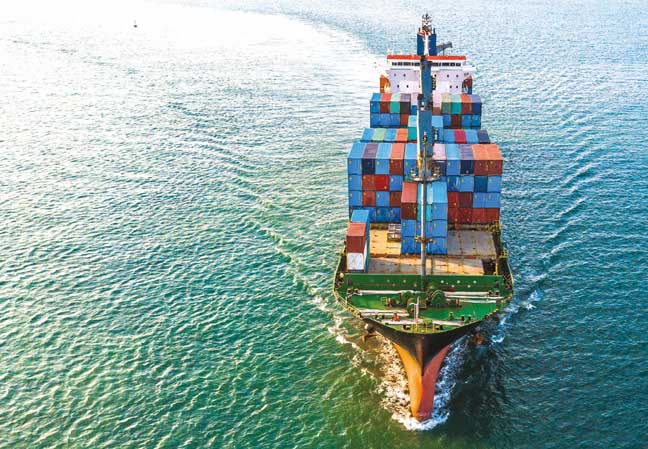A CALL FOR DIVERSIFICATION
Diversifying to elevate local exports
Suresh de Mel
Export Development Board
Q: How did Sri Lanka Export Development Board (EDB) react to the economic tumult of COVID-19?
 As the main government agency for export development, EDB played a pivotal role in enabling the exporter community restart operations in the midst of the nationwide lockdown.
As the main government agency for export development, EDB played a pivotal role in enabling the exporter community restart operations in the midst of the nationwide lockdown.
This involved facilitating logistics, as well as export certifications, licences and curfew passes, which helped fast track the recovery process.
An operational client service line was established to provide speedy assistance and updates regarding procedural changes, guidelines and announcements. Additional interventions helped facilitate cargo movement in coordination with Sri Lanka Customs, Sri Lanka Ports Authority (SLPA), the Department of Commerce, the police and presidential task forces.
Close coordination ensued with Sri Lankan missions overseas through weekly meetings with the Ministry of Foreign Affairs, sharing intelligence reports detailing new opportunities, market alerts and product updates.
Data gathered regarding relaxed regulations, strategies adopted by the EU and SAARC countries, and product inquiries were also disseminated through our COVID-19 website. Moreover, an online mechanism for submissions of applications was established to facilitate the supply of essential raw materials for certified export orders.
Q: As for the national economy, what role does EDB play?
EDB is keen to exceed expectations, looking to play roles such as mentor and facilitator to the country’s industrial and service ecosystem, in a bid to elevate exports and employment prospects, while identifying new markets and trends.
We also aim to serve as a policy adviser and monitor, and knowledge provider.
The agency has an ambitious plan to expand local exports through the National Export Strategy (NES), which was developed by multiple stakeholders in the private sector and government.
This seeks to increase the value of the nation’s export products and services, as well as competitiveness, while strengthening the entry and compliance capabilities of Sri Lankan exporters.
We aim to increase exports to markets beyond the EU and US by 50 percent by 2022 while consolidating the country’s existing market position. As such, we’re focussing on seven key product sectors that account for 80 percent of Sri Lanka’s export value.
Q: Can you detail the strategies you have implemented to expand your services?
A dedicated hotline was established to respond to queries, eliminating the need for site visits while addressing the health and safety concerns posed by the pandemic.
Meanwhile, our e-marketplace provides market and product information for buyers, suppliers, shipping lines, and logistics and finance service providers. This system is empowered with software that enables safe online purchasing and is accessible from anywhere.
EDB’s Online Alert for Trade Obstacle (OATO) platform enables exporters to submit issues that are taken up for discussion at the Exporters’ Forum – which is a common platform to discuss and resolve sectoral issues – with the participation of trade related government agencies and the private sector.
 Furthermore, regular online B2B promotions and webinars are conducted to educate exporters and SMEs on branding, marketing and financial issues. Additional measures are taken to enhance direct engagement with exporters to understand their issues.
Furthermore, regular online B2B promotions and webinars are conducted to educate exporters and SMEs on branding, marketing and financial issues. Additional measures are taken to enhance direct engagement with exporters to understand their issues.
Our integrated marketing communication campaigns, which are conducted in selected markets, are set to generate a positive image of Sri Lankan exports.
Q: How do we increase goods and services exports, while diminishing our reliance on imports, loans and other trappings?
The local export sector proved to be resilient despite the global environment. Merchandise exports accounted for US$ 9.9 billion last year, which exceeded the revised annual target.
We aim to adopt a three pronged strategy to expand Sri Lankan exports based on product and market diversification, and introduce advanced technologies while working to broad base the beneficiaries of exports across the country – including SMEs.
This is in line with the president’s vision for the country – i.e. ‘Vistas of Prosperity and Splendour.’



